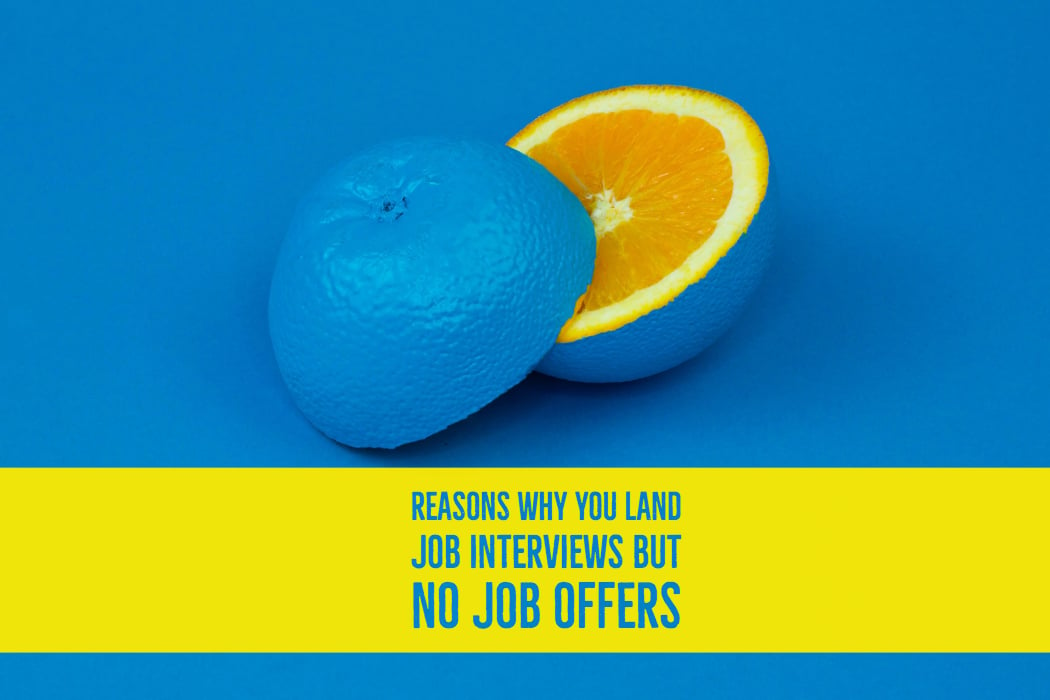Jobs, jobs, jobs. You can’t live with them, you can’t live without them!
While the job search can be grueling, the utmost frustration happens when you go through all the hoops of applying for that job only to fail at the interview level. And the worst part is, you don’t get to know what went wrong in the interview that led to the rejection. To understand what happens behind the closed interview doors when they make the final decisions, Steven Ma (UX designer, instructor, and mentor) gives you thoughts of what could have gone wrong in your interview.
Looking for an amazing internship or job opportunity? Check out YD Job Board to work at some of the best design companies in the world.
Hiring designers? Post a job with us to source the best talent for your requirement.
So you wonder
“My interviews went so well. The panel members all seemed to like me. Why didn’t I get that job?”
One of the more frustrating things about job interviews is that you rarely receive feedback on why you didn’t get the job. Even if they wanted to, companies are advised NOT to give feedback due to concerns about lawsuits and other complications.
While there are thousands of reasons why you didn’t get the job, I can outline some of the main reasons. Let’s see if they resonate with you.
It’s you…
Ouch! This hurts. It really is you, but don’t take it personally. Take it as a lesson and learn from it. Think back to the interviews, did you commit any of these mistakes?
In no particular order…
- You said the wrong things. Did you sound a bit too cynical? Did you complain too much when talking about why a project didn’t work out? Did you use “me” too much when you should be using “us”? Did you place the blame on everyone but yourself? Did you make an insensitive joke and upset someone without realizing it?
- You talked too much. Some candidates have the urge to talk A LOT during interviews because they feel like it’s time to sell. During your interview, did you talk too much and not listen enough? If you did, you might have left the impression you were dominant and difficult to collaborate with, and that could be considered a red flag that eliminated you from contention.
- Your body language betrayed you. Research suggests that communication is 93% non-verbal. While you thought you said all the right thing during your interviews, what you said only accounted for 7% of what was actually communicated. Your tone and your body could have expressed a different message. Did you smile during your interview or did you appear grumpy? Did you look uptight or perhaps appeared to lack confidence when you spoke? When you were challenged did you appear defensive — not through what you said but how you acted?
- Your portfolio presentation wasn’t good. Communication is such as huge part of what UXers do so it shouldn’t be surprising that portfolio presentation is a critical factor in the evaluation process. When you pitched your portfolio, did you put efforts in your preparation to customize your pitch to your audience? Did you make sure your presentation had a logical flow? Did you make sure every person sitting in that conference room could read the texts on the screen and/or see the details of the wireframes /mockups you were showing? Did you make sure they could hear you when you spoke?
- You failed the whiteboard challenge, but not in the way you think. So you think you had come up with an amazing solution to the design challenge they gave you, but that isn’t what this is about. No interviewer expects candidates to come in an ace a design challenge on the spot, but interviewers do look at the challenge as a proxy for how you think, how you attack a design problem, and how you collaborate with others. Did you ask good clarifying questions on the business requirements? Did you try to understand who the users are? And did you explore different approaches in solving the challenges, and could weigh the pros and cons of each of your approaches?
- You set the wrong expectation. Some UXers are really into their title because it makes them feel good: Chief UX designer, Head of UX, Lead UX strategist, UX architect… If you marketed yourself as much, but your experience didn’t back your title, it might have set the interviewers up for much higher expectation than what your accomplishments showed. Interviewers could be left feeling disappointed and in some cases, feeling deceived. And yeah, that’s not good.
The above is not the comprehensive list of reasons as there literally could be a thousand reasons, but hopefully, it gives you an idea what could have gone wrong in your interviews if you didn’t get the job. In my career I’ve certainly made a lot of these mistakes so by sharing these I hope it’ll save you from making them.
It’s not you. It’s them…
When things don’t work out sometimes we blame ourselves. Sure, you might have made one or multiple mistakes I outlined above, but the reason you didn’t get the job could be entirely something else — something beyond your control. For examples,
- They found someone who was just a better skill fit. Each UXer offers a unique combination of skill set and experience. However, this is not a game of finding someone with the best skill, it’s a game of finding the best match. Even though on paper, you might appear to be the best fit, they could have found someone with the combination of skills and experience they couldn’t turn down.
- They found someone who was more of a situational fit. In the evaluation process, the hiring panel often thinks about how a new hire would fit in and what role s/he would play. Even though they liked you, they might have opted to go with another candidate who was more skilled in ______ (verbal communication, UX research, motion design, information architecture, rapid prototyping…. you get the idea) because that was an area of weakness they wanted to address, and that was why they ended up choosing someone else.
- The team’s culture & fit. The decision might have come down to choosing between you and Mary Jane. Mary Jane and you are both great designers, but they just liked Mary Jane a bit more because of her easy-going attitude, her wicked sense of self-deprecating humor, and her ability to work through great deals of ambiguity. This combination was just too good for them to pass up because that’s what working on this team is like and the kind of personality they need. They might have liked you too, but she was just that missing puzzle piece.
It’s … well, it is what it is
An interview is a crap shoot. As much as we like to explain and justify decisions from a logical angle, it isn’t necessarily all that. Sometimes, it is just not meant to be.
Getting a job offer comes down to having all — or at least most —of the stars aligned. On the day of your onsite, perhaps everyone on the interview panel was in a giddy mood because the company just went IPO the week before and the stock was trending up. Their judgment might have been subconsciously influenced by this mood without evening knowing of their bias.
On the other hand, you could have a star falling out of alignment on the day of your interview. An interviewer who was supposed to interview you got sick, and she was replaced by someone who was your design nemesis. You had what you thought was a decent interview but he ended up being the one and only person on the panel who failed you.
Most don’t want to admit it, but there’s an element of luck in this somewhere.
Final words
Hopefully, this article helps demystify why you didn’t get that job after a seemingly successful interview. Don’t feel discouraged if things didn’t work out. The interview is a process, it’s a journey. Control what you can control. You get better with more practices and experience. While there’s no magic recipe that guarantees successes, you can improve your chance for your next interview if you keep practicing and trying to get better at it.
Good luck, and I sincerely hope this article helps you land your next job!
YD has published the best of Industrial Design for over 15 years, so the designers you want are already on our network. YD Job Board is our endeavor to connect recruiters with our super talented audience.
To recruit now, Post a Job with us!
The original write up by Steven Ma here.

